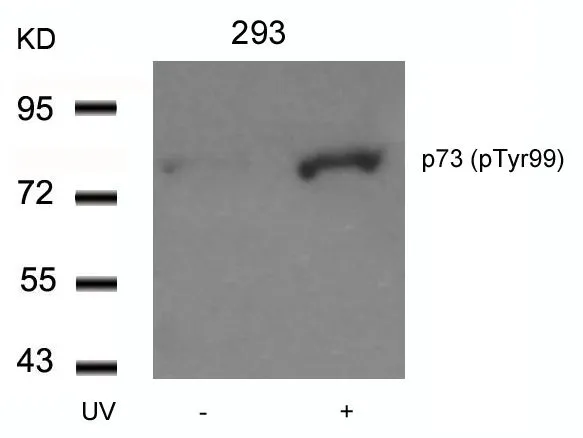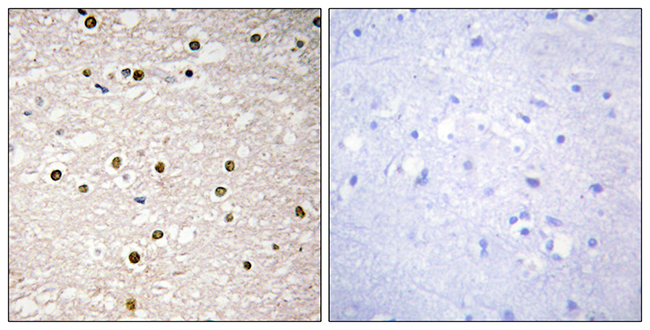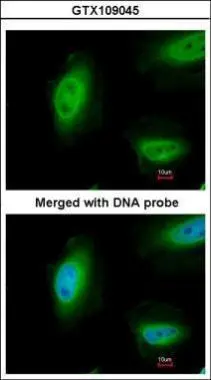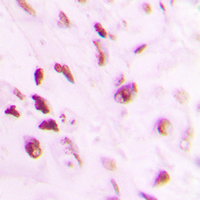
WB analysis of extracts from 293 cells untreated or treated with UV using GTX50132 p73 (phospho Tyr99) antibody.
p73 (phospho Tyr99) antibody
GTX50132
ApplicationsWestern Blot
Product group Antibodies
ReactivityHuman
TargetTP73
Overview
- SupplierGeneTex
- Product Namep73 (phospho Tyr99) antibody
- Delivery Days Customer9
- Application Supplier NoteWB: 1:500-1:1000. *Optimal dilutions/concentrations should be determined by the researcher.Not tested in other applications.
- ApplicationsWestern Blot
- CertificationResearch Use Only
- ClonalityPolyclonal
- Concentration1 mg/ml
- ConjugateUnconjugated
- Gene ID7161
- Target nameTP73
- Target descriptiontumor protein p73
- Target synonymsCILD47, P73, tumor protein p73, p53-like transcription factor, p53-related protein
- HostRabbit
- IsotypeIgG
- Protein IDO15350
- Protein NameTumor protein p73
- Scientific DescriptionThis gene encodes a member of the p53 family of transcription factors involved in cellular responses to stress and development. It maps to a region on chromosome 1p36 that is frequently deleted in neuroblastoma and other tumors, and thought to contain multiple tumor suppressor genes. The demonstration that this gene is monoallelically expressed (likely from the maternal allele), supports the notion that it is a candidate gene for neuroblastoma. Many transcript variants resulting from alternative splicing and/or use of alternate promoters have been found for this gene, but the biological validity and the full-length nature of some variants have not been determined. [provided by RefSeq, Feb 2011]
- ReactivityHuman
- Storage Instruction-20°C or -80°C,2°C to 8°C
- UNSPSC41116161







